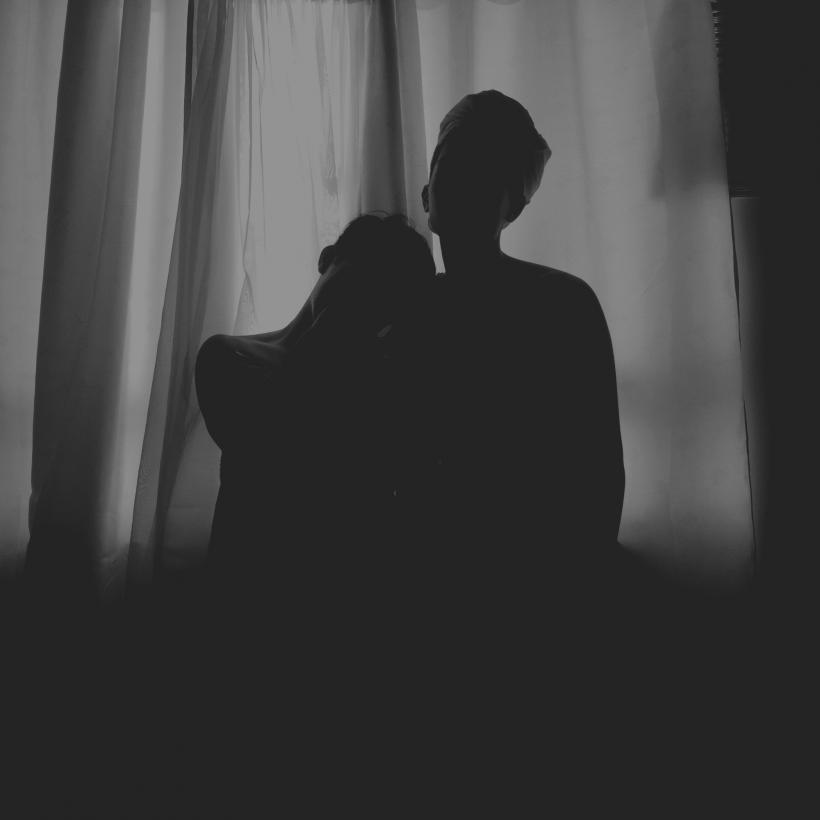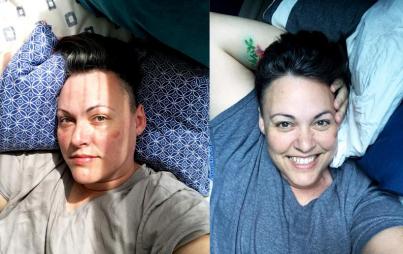
Photo by Elvin Ruiz on Unsplash
I started a new job four months ago. It was the first time I entered a space and experience as publicly nonbinary and using the pronouns they, them, and theirs.
Before landing this job, I had been in eating disorder treatment for three years. I had reached a point where I could live more in line with my personal goals and ambitions rather than having life dictated by my eating disorder.
Through years of eating disorder recovery, I acquired a better sense of who I am, and I felt proud to have that person recognized on day one.
Queer people have to work hard for individualized respect. Self-advocacy is not something we are privileged with from birth, nor are queer people socialized in such a way to know how to do this. We exist in a culture that forces us into a two-and-only-two sex and gender binary, making the in-between space feel impossible.
For the first couple of months, I was pleasantly surprised at how adept my coworkers were with my pronouns. Recently, however, I’ve noticed an increase in the number of people referring to me as "she."
At work, I have to choose between using a “male-identified” or “female-identified” bathroom, which serves as a reminder that to a certain extent, regardless of which bathroom I choose to use, I am in a space that doesn’t actually accommodate my body. For reasons related to past trauma, along with a certain sense of safety, I still feel comfort in conforming to what is expected, so I choose the “female-identified” bathroom. I see many of my coworkers there, we make small talk, we wash our hands, and we go our separate ways.
However, in those seemingly benign encounters, I believe that my presence in that bathroom is reinforcing the perception that I am female.
Misgendering feels like an act of body oppression to someone who is non-binary and who has an eating disorder. It fills me with doubt, and the consequence of hearing the wrong pronouns is painful and disruptive. Being misgendered confirms my greatest insecurity that I don’t “look” non-binary enough. I'm noticing there is a correlation between feeling like my gender identity was misunderstood and my urge to engage in eating disorder behaviors.
“She...”
It’s a quick, linear process of freeze then shock then panic. My confidence is undermined. There are still many moments where I question if I’m making all of this identity shenanigans up, and being misgendered only feeds in that insecurity.
“Her…”
I immediately want to hide. I want to be small again.
Shame tells me that I can’t handle the truth about my identity (nor can others). Shame keeps me from correcting people’s slips because part of me still suppresses my identity. Shame makes me second guess if I am worthy of being referred to by my pronouns.
You Might Also Like: Butch Is Beautiful: On Learning To Love Myself
“...hers”
I resent myself. My body has failed me; perhaps I have failed my body. Misgendering is a sign that I have failed to escape being perceived as wholly a woman.
A large part of my recovery has been figuring out who I am — my internal reality. My mind finally feels right, but my body is read differently, and it’s incredible how fast I let other people’s assumptions become a new reality for me. The world around me isn’t adjusting to my identity at the same pace as I am.
“She”
I become profoundly self-conscious. Dysphoric feelings are hard to explain because they are abstract. I question my validity and the horrible irony of what it means not to be seen as who you are when you're your most authentic self. It’s painful to realize that barely anyone else sees me but me, especially when my desire to be invisible has faded.
“Her”
A single syllable can carry so much power. Immediately, I perceive with an uncanny acuity, my chest, my hips, my thighs. I make arguments for the inherent femininity of almost every body part. I crave the emptiness I felt when I was restricting because it made me feel less feminine.
And here is where I pause. I see you eating disorder, my old friend. Your insidious tricks to convince me that restriction is a solution to hating my body won't work.
“...hers”
I breathe. I summon the gratitude I have for the process of recovery and for what it has enabled me to learn about myself. I’ve accepted that it will perhaps always feel easier to refuse a meal than to confront the distress of being misgendered. But the path of least resistance isn’t what taught me that I can hold space for others’ inevitable slip-ups and that I can interact with my internal dialogue differently during these encounters. That can be the difference between apologizing profusely and feeling like a burden and knowing that I am worthy of the respect and safety that comes with gender-neutral pronouns for me.
Queer people have to work hard for individualized respect. Self-advocacy is not something we are privileged with from birth, nor are queer people socialized in such a way to know how to do this. We exist in a culture that forces us into a two-and-only-two sex and gender binary, making the in-between space feel impossible.
To be queer and to have an eating disorder requires an epic reconciliation between body and mind. Perhaps most importantly, just like recovery has shown me the importance of self-compassion after a relapse, I must be gentle with myself.








